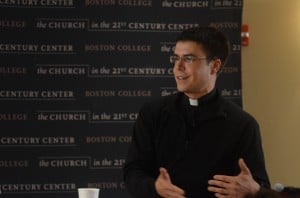Maybe it’s up to me to do what the good people can’t. Or maybe there are no good people. Maybe there are only good decisions.
— John Reese, Season One, Person of Interest
Our home did not have a television when I was growing up. So instead, for entertainment, my parents elected to read us stories. And they did, night after night, year after year. I can still picture the scene: my brothers and sisters and I sprawled on the living room floor, with hands busy drawing, the more contemplative among us gazing, enraptured, into imagined vistas, while my father’s sonorous voice described worlds and characters beyond our door.
My parents’ decision was, on balance, a good one. But it came with a bit of cost. We were basically illiterate in the schoolyard when kids yarned at length about last night’s episode of Family Ties or Knight Rider. We were pop culture misfits, who knew more about hobbits than Who’s the Boss? We had only brief snatches of popular entertainment, catching a few 1980s hits like The Muppet Show at grandma’s, or episodes of Diff’rent Strokes at my best friend’s house.
Which brings me to the present day. I’m still a bit of pop culture misfit, but I’ve retained a love of stories. Which is why I get excited when I discover a good television show, amid the hundreds available today. Person of Interest stands out because it’s part high-tech crime thriller and part human conversion story. Without being in the least “religious”, it is striking for its interest in saving both the victim and the criminal, a rare device in the “justice-obsessed” genre of law-and-order television — it gives us a way for us to be interested in the criminal not as an anti-hero, but as a human being.
The show’s backstory is that a former CIA agent named John Reese (Jim Caviezel) has been recruited by enigmatic billionaire Harold Finch (Michael Emerson) to help him prevent crimes in New York City before they happen. Rather than using Minority Report-style psychics to justify this conceit, Person of Interest more plausibly invokes, in our post-innocence NSA-wary world, a sophisticated “machine”, a computer that uses algorithms to sort the Internet-mediated matrix of data, cell-phone and camera feeds. It will spit out a social security number to Finch, and it’s Reese’s job to figure out if the owner of the number is the next victim or the perpetrator, what the crime will be, and to stop it before it happens.
At the human level, it’s evident that both Reese and Finch have some personal wounds that propel them to save people, behind the scenes and off-the-grid, evoking comparisons to certain popular superheroes. There is something urgent to their undertaking, even though they are calm and methodical about their work. It is strongly implied, and gradually revealed, that they are making up for mistakes in their past.
The writers of Person of Interest have realized what a powerful motivator atonement is, and given it a further twist. Reese often desires to stop a potential crime, not just for the sake of saving a victim, his primary motive, but for the good of the perpetrator. He must stop them before they commit not just the crime, but the sin (my word, not theirs). “It would kill her,” he says in one episode about a doctor who is planning to avenge her sister’s suicide by murdering the man who drove her to it. He was talking about the doctor’s soul.
There is an immense sympathy for the ordinary human beings who are often pressured to commit terrible acts out of desperation. This is an unusual angle on crime-solving dramas, as it combines both justice and mercy, breaking free of the strictly legal moral structures of the typical whodunit. Although a vigilante, Reese has something almost priestly about him in this regard. Like Chesterton’s Father Brown, he is an unconventional detective, caring about a cause that spans both heaven and earth, and embraces the good and the wicked alike. Because of this, whether it’s deliberate or not, the show has “moral verisimilitude” – a quality that resonates with the viewer. We feel the rightness of Reese’s “mercy”, even while we know the mercy is gratuitous.
Person of Interest is frequently raw and violent, and the right thing to do is not always clear. But it ultimately bears witness to a basic truth: that all humanity deserves dignity, and a chance to overcome its sinful inclinations. In reality, we are all given second chances, over and over again. This alone should remind us that we are all “persons of interest.”
(The new season of Person of Interest began on September 23, 2014)













